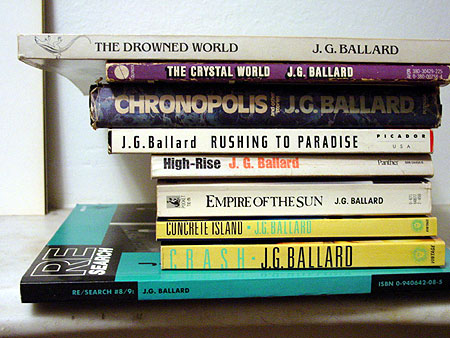Notes
1. Dick wrote We Can Build You in 1962 but the book wasn't published 'til 10 years later, causing some critical misreading of how it reflected growth or changes in the author's thinking. For example, Patricia Warrick considers it an inferior treatment of "...an idea [of a human becoming an android] that apparently remained in Dick's mind after he finished the superb Do Androids Dream of Electric Sheep?" (p. 209, Philip K. Dick, edited by Olander and Greenberg, 1983).
2. Clues that it's an earlier novel: much of the action centers around an American small business struggling to stay afloat, with "Organization Man" themes redolent of the '50s and Dick's mainstream novels of that time. By the late '60s, psychedelia had happened and Dick had gone full blown cosmic.
3. It's unusual for being written in the first person. More typical is the well-constructed beginning that goes off the rails halfway through, into personal hypochondriac maundering.
4. The plot of the first half: an electric musical organ company builds an animatronic robot of Edward M. Stanton, Abraham Lincoln's Secretary of War, as a prototype, then follows it with a lifelike, walking, talking, reasoning Lincoln. Although the simulacra think and feel with their "ruling monad brains" the same way their predecessors did they are typically callously referred to as "the Stanton" and "the Lincoln" by the narrator and other characters. A Howard Hughes style industrialist takes an interest in the simulacra because he wants to use them as fake companions to encourage people to immigrate to the Moon, where he owns the majority of the land. The builders of the sims wrestle with losing their creations in the face of a lucrative buy-out. The Lincoln and the Stanton become active advisors within the "start up."
5. The narrator, Louis Rosen, an employee of the organ company, falls in love with Pris Frauenzimmer, the 19-year-old-going-on-40 cured schizoprenic who designs the outer shells of the sims. She is a typical Dick female, a highly intelligent ball crusher. Perceiving the industrialist as a rival for Pris' affections, Louis flips out midway through the book and tries to kill him. The remainder of the narrative describes Louis' experiences in a state psychiatric facility. Dick drops the android plot after the attempted murder.
6. A charitable reading of the book (which Warrick and others have suggested): Louis has turned into a machine and Dick typically subverts the mechanics of the sci fi potboiler to explore the psyche of the human android. Louis, however, is probably the least cold, the least logical, character in the book--he is a sloppy emotional mess from page 1--and Dick lays no foundation for an excess of logic sending him over the edge. An uncharitable reading: Dick needed to wrap up the book to get paid and found it easier to write 80 pages about his own mental health and women problems than to work out the rest of the plot, and no one would read this dime novel anyway.
7. Still vital are the ever-surprising uses of the Lincoln and the Stanton as characters: the former grave but given to annoying reading aloud from children's books, which he finds fascinating, the latter decisive in business matters but mysterious as to ultimate goals--too bad we never find out what they might be. As with much Dick, there's an intriguing novel in here waiting to be written. A debate between the industrialist and the Lincoln about what it means to be human anticipates the trial of Data in Star Trek TNG's "The Measure of a Man" episode by some 25 years. Rather unlike Star Trek is the endless bickering between Louis and Pris, showcasing the author's urbane, melancholy humor. At one point they check into a motel, feinting sexual interest back and forth. Pris suggests going out for corn beef sandwiches. A page or two later, during a lull in their sparring, Louis says "It's too late for kosher corned beef anyhow. I don't mean too late in the evening. I mean too late in our lives."
Related: Lies, Inc. (aka The Unteleported Man).




